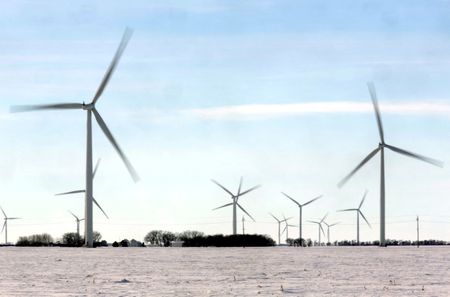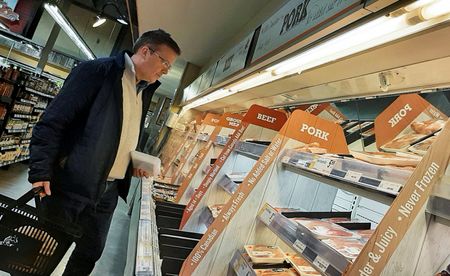 1
1 1
1


By Steve Scherer
OTTAWA (Reuters) -Canadian Finance Minister Chrystia Freeland on Tuesday will present this year’s budget, which will have a major focus on scaling up investment in clean technology and will include investments in healthcare and help for low-income households.
Countries across the globe are vying for a portion of the low-carbon economy of the future. In Canada, there’s more pressure to step up green investments to level the playing field with the United States, which passed a series of massive incentives in the Inflation Reduction Act (IRA) last year.
Last week Freeland said Canada is at a “crucial crossroads” for the green transition and that it would be “reckless” not to make major investments in clean tech. But she has also said she does not want to fuel inflation and slowing growth means fiscal responsibility is warranted.
“Of course the federal government needs to better position Canada to compete with the U.S. for investment in the energy transition,” said Randall Bartlett, senior director of Canadian economics at Desjardins, in a note. “But it can’t break the bank to do it.”
Freeland will deposit the document to parliament at around 4 p.m. ET (2000 GMT).
Prime Minister Justin Trudeau, who has set a target for net-zero carbon emissions by 2050, has made fighting climate change a cornerstone of his leadership.
But analysts have warned that too much government investment can add to price pressure just as the central bank is still trying to get inflation back to its target range following eight interest rate hikes over the past year.
“In a year in which the central bank is still applying high interest rates to contain growth, fiscal policy should not add stimulus that would only be countered by further rate hikes,” said Avery Shenfeld, chief economist at CIBC Capital Markets, in a note.
While no price tag for the green investments has yet emerged, one measure will be a 30% investment tax credit to boost clean-tech manufacturing, especially in the electric vehicle (EV) supply chain, two sources told Reuters last week.
The budget will also include a system to lock in future carbon credit prices, a move meant to boost investments by giving businesses certainty to develop low-carbon technologies, and investments focused on increasing the capacity of the electricity grid, on battery manufacturing and on mass timber construction, sources told Reuters this month.
Canada plans to expand its investment subsidies for carbon capture technology and hydrogen production and create a C$2 billion ($1.5 billion) fund for cutting emissions from heavy industry, Bloomberg reported citing people familiar with the document late Monday.
Bloomberg also said the government opted not to use a production tax credit for carbon capture and storage to cover operating expenditures, and that there would be C$2 billion in cash grants to help heavy industry decarbonize operations.
The Globe and Mail reported Monday the budget aims to save about C$7 billion over five years through cuts to federal travel and reduced outsourcing, including cutting the use of management consultants.
Canada will spend more than C$2 billion on a rebate aimed at helping low-income families bear the brunt of high inflation, the Canadian Broadcasting Corp reported on Monday, citing a source.
The budget will also include an increase in federal healthcare spending promised earlier this year to the provinces, which administer the public health system.
(Reporting by Steve Scherer; Editing by Andrea Ricci and Chizu Nomiyama)